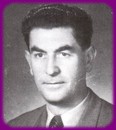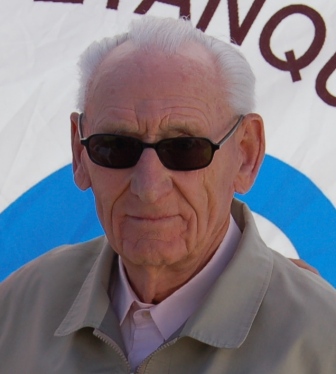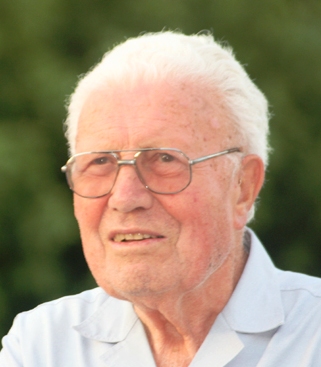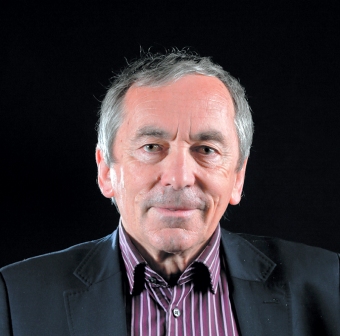In 1957 in Spa, Belgium, during an International tournament, arranged by the Belgium Pétanque Federation and organised by the local boule club, the foundations of the International Federation of Pétanque were laid down.
MM. Mentior (Belgium), Grimaldier (France), Danielli (Morocco), Veglia (Monaco), Borloz (Switzerland) and Rahis (Tunisia) were present at the meeting. The decision was made to create an International Federation, which was achieved a few months later on March 8th, 1958 in Marseille. By that time Spain had joined the six countries that were present in Belgium the year before.

Neither the F.I.P.J.P. nor the F.F.P.J.P. were proactive organisations. In 1966 after organising the World Championship in Palma de Majorca (Spain) the F.I.P.J.P. became sleeping. Five World Championships had been held up until then, the first in Spa (Belgium) in 1959, then in 1961 in Cannes, in 1963 in Casablanca, in 1964 in Geneva and in 1965 in Madrid.
Due to the many managerial problems in the Federation, Mr Altério resigned at the 1961 International Congress in Cannes and Mr Habib (Switzerland) was elected as President with a Swiss committee, MM. Borloz and Canale being Treasurer and Secretary. The situation deteriorated to such an extent that France left the Federation in 1964 and Mr Habib resigned at the end of 1967. Meanwhile the job of handling routine matters was given to Spain under the Presidency of Mr Sabata-Anfruns from Barcelona.
 The French Federation was also having managerial problems, but in 1969, after the election of a new committee at the head of the French Federation (F.F.P.J.P.), the new President André Paul decided to contact the National Federations, mentioned above, with a view to breathing new life into the International Federation. Discussions during a meeting in Marseille in 1970 were positive and the year after a World Championship was organised by the County Committee of Alpes-Maritimes under the direction of the F.I.P.J.P.´s young and new General Secretary, Mr Henri Bernard. Since this date, the World Championships have been organised every year without interruption.
The French Federation was also having managerial problems, but in 1969, after the election of a new committee at the head of the French Federation (F.F.P.J.P.), the new President André Paul decided to contact the National Federations, mentioned above, with a view to breathing new life into the International Federation. Discussions during a meeting in Marseille in 1970 were positive and the year after a World Championship was organised by the County Committee of Alpes-Maritimes under the direction of the F.I.P.J.P.´s young and new General Secretary, Mr Henri Bernard. Since this date, the World Championships have been organised every year without interruption.
At the Congress of 1971, Mr Paul (French Federation´s President) was elected President of the International Federation with MM. Bernard and Garnier as General Secretary and General Treasurer. Since this date France has always held the Presidency.
 When in 1977 President Paul ended his mandate with the French Federation, he decided at the same time to no longer continue as the F.I.P.J.P. President, the General Secretary Mr Henri Bernard was elected as the President of the F.I.P.J.P. a position which he kept until 2005. Now the president is Mr Claude Azema, reelected in 2009 and 2015...
When in 1977 President Paul ended his mandate with the French Federation, he decided at the same time to no longer continue as the F.I.P.J.P. President, the General Secretary Mr Henri Bernard was elected as the President of the F.I.P.J.P. a position which he kept until 2005. Now the president is Mr Claude Azema, reelected in 2009 and 2015...
Following its new start in 1971 the F.I.P.J.P. has continually welcomed new members. The number of member Federations has increased from the original seven to more than one hundred now across the five continents. The number of players is higher than 15 millions in he world.
Since 1987, in addition to the classical World Championships, World Championships for ladies and youngsters have been held alternatively every two years, with World Cup gathering the eight best countries, the years without world championship.
The F.I.P.J.P. has also been a member of the A.G.F.I.S. (Association or International Sport Federations recognized by IOC) and under this name took part in the World Games in 1985 in London, in 1989 in The Hague and in 1993 in Karlsruhe. It is now the C.M.S.B., of which more is spoken later, who incorporated the F.I.P.J.P. into its organization and it is as a member of the C.M.S.B. that the F.I.P.J.P. participated in the 1997, 2001, 2005 2009 and 2013 World Games.

Following talks between three International Federations, the Confédération Bouliste Internationale (C.B.I.), the Fédération Internationale Boules (F.I.B.) and the Fédération Internationale de Pétanque et Jeu Provençal (F.I.P.J.P.), it was agreed to create the Confédération Mondiale Sport Boules (C.M.S.B.), which was done on December 21, 1985, in Monaco, where the C.M.S.B. has since then had its headquarters.
The immediate goal of the C.M.S.B. was to be admitted as a Member of the International Olympic Committee (I.O.C.), in order to consider a future participation in the Olympic Games. This recognition was granted on 15 October 1986 in Lausanne.
Unfortunately, the C.M.S.B.'s application to participate in the Barcelona Olympic Games as a demonstration sport was not accepted and the C.M.S.B. has to continue, year after year, to enrich and represent a new file.
On October 12, 2015 in Monaco the IWC, the FIB and the FIPJP, the 3 disciplines (Raffa Volo, Boule Lyonnaise & Pétanque) have filed a new application for candidacy. We have the honor and pride to announce with a united and solidary voice the filing of candidacy of our sport for the 2024 edition of the Olympic Games. Boules Sport 2024 in the original spirit of the creation of the CMSB expresses that our disciplines are one and the same sport.
> The same sport which since 1986 has allowed the CMSB to be recognised as an Olympic federation by the IOC.
> The same sport that has allowed us to be a member of SportAccord, the IWGA and the ARISF.
> The same sport which - through the representation of our 3 disciplines - has allowed us - step by step - to be present in all national, continental and world championships.
> The same sport which today is present in 165 countries, 262 federations and is practiced by nearly 200 million people.
> A single sport practiced on every continent, with representation for all, regardless of age, gender, origin or religion.
> The same sport accessible to all and practised within the existing sports infrastructure.
> The same sport benefiting from both the respect of the rules concerning the fight and the prevention of doping. The same sport that is clean and has almost no environmental impact. The same sport with undeniable health benefits.
> The same sport with multiple benefits in terms of socialisation, motor, sensory, intellectual and emotional input.
The same sport whose universality is combined with popularity, whose transmission values make it a multi-generational sport > The same sport which is a health sport in Japan, a national sport in Thailand and many other examples.
> The same sport that is our sport and that we will all support together for its bid for the Olympic Games.
The objective is ambitious but we want to achieve it. To achieve it, we are going to act on all the parameters necessary to make ourselves known, present ourselves, defend our file and go from being eligible to being elected.
The announcement of Boules Sport's bid for the 2024 edition of the Olympic Games allows us to focus on a sport and disciplines that are still not well known. Boules Sport's disciplines of pétanque, boule lyonnaise and raffa volo are represented in 165 countries through 262 federations and more than 200 million players. 67 countries have already won a medal in at least one of the world championships.
Boules Sport is already present in the most important world multisport events: World Games, Mediterranean Games, Asian Indoor Games, S.E.A Games, All Africa Games, Pacific Games, Commonwealth Games, Island Games (Indian Ocean), Asian Beach Games in particular. This sport is now reinforced by the image that complements its values of universality, popularity, transmission and the answers to the eligibility criteria for the Olympic Games.
Boules sports, under the aegis of its federation CMSB, had officially announced their bid in 2015, almost two years before the IOC (International Olympic Committee) finally awarded the Games to Paris. With Claude Azema at the head of the bid and a globalised bid between the three disciplines in order to learn from the failures of 1992 and the non-receipt of sport for the Barcelona Games, this bid had great assets. Everything seemed perfect and imagining bowls becoming an Olympic sport on French soil was like a fairy tale.
Although the main demands of Paris 2024 seemed to coincide with the logistical characteristics of the sport, i.e. not having to rebuild other infrastructures to limit the cost and environmental impact of these "test sports", there was one problem that quickly arose in the eyes of the candidates: popularity with young people.
While there were some aspects that promoted the appearance of boule sports, this aspect was a big blow to the bid. Although more and more young people in France and around the world are taking up the sport (especially in Thailand, where it is king), bowls did not seem to be able to compete with skateboarding or breakdancing.
But the Organising Committee of the Olympic Games finally decided otherwise. It was therefore to the detriment of Breakdance that bowls sports were definitively excluded in September 2019. A real disillusionment according to some sports lovers.
- April 2020 will mark the dissolution of the CMSB - Confédération Mondiale Sport Boules.
- During the year 2021: birth of the World Pétanque Bowls Federation (WPBF) & election of the Board of Directors in November 2021 in Santa Susanna (Spain). Claude Azéma is its President.
On 9 October 2025, at the Congress in Douai (France), after more than thirty years of unfailing commitment, Claude Azéma will pass on the baton, leaving behind a deep and lasting mark on the history of the International Federation of Pétanque and Provençal Games. As Secretary General and then President, he devoted most of his life to promoting our sport on every continent, defending its values of conviviality, respect and precision, and flying the flag for pétanque on the international stage. Under his leadership, the F.I.P.J.P. experienced remarkable growth, increasing the number of world competitions, structuring its organisation and achieving unprecedented recognition within the global sports movement. His dedication, rigour and passion made him an iconic figure, respected and admired far beyond the playing fields.
 Since October 2025, Gérard Schneider will have the honour and responsibility of continuing this work. A man of experience and conviction, he embodies both continuity and renewal. His presidency promises to remain faithful to the spirit instilled by Claude Azéma, but with a resolute focus on the future, seeking to further modernise the federation, strengthen its influence and open up new perspectives for our sport. A man of experience and passion, Gérard Schneider is an undisputed leading figure in the world of pétanque in Europe and beyond. Gérard Schneider played a central role in establishing the CEP's European headquarters in Luxembourg. Thanks to him, the country has become a strategic hub for the European development of pétanque. He has also worked alongside numerous CEP committees and bodies, promoting better coordination between national federations and strengthening Europe's influence on the international boules scene...
Since October 2025, Gérard Schneider will have the honour and responsibility of continuing this work. A man of experience and conviction, he embodies both continuity and renewal. His presidency promises to remain faithful to the spirit instilled by Claude Azéma, but with a resolute focus on the future, seeking to further modernise the federation, strengthen its influence and open up new perspectives for our sport. A man of experience and passion, Gérard Schneider is an undisputed leading figure in the world of pétanque in Europe and beyond. Gérard Schneider played a central role in establishing the CEP's European headquarters in Luxembourg. Thanks to him, the country has become a strategic hub for the European development of pétanque. He has also worked alongside numerous CEP committees and bodies, promoting better coordination between national federations and strengthening Europe's influence on the international boules scene...




